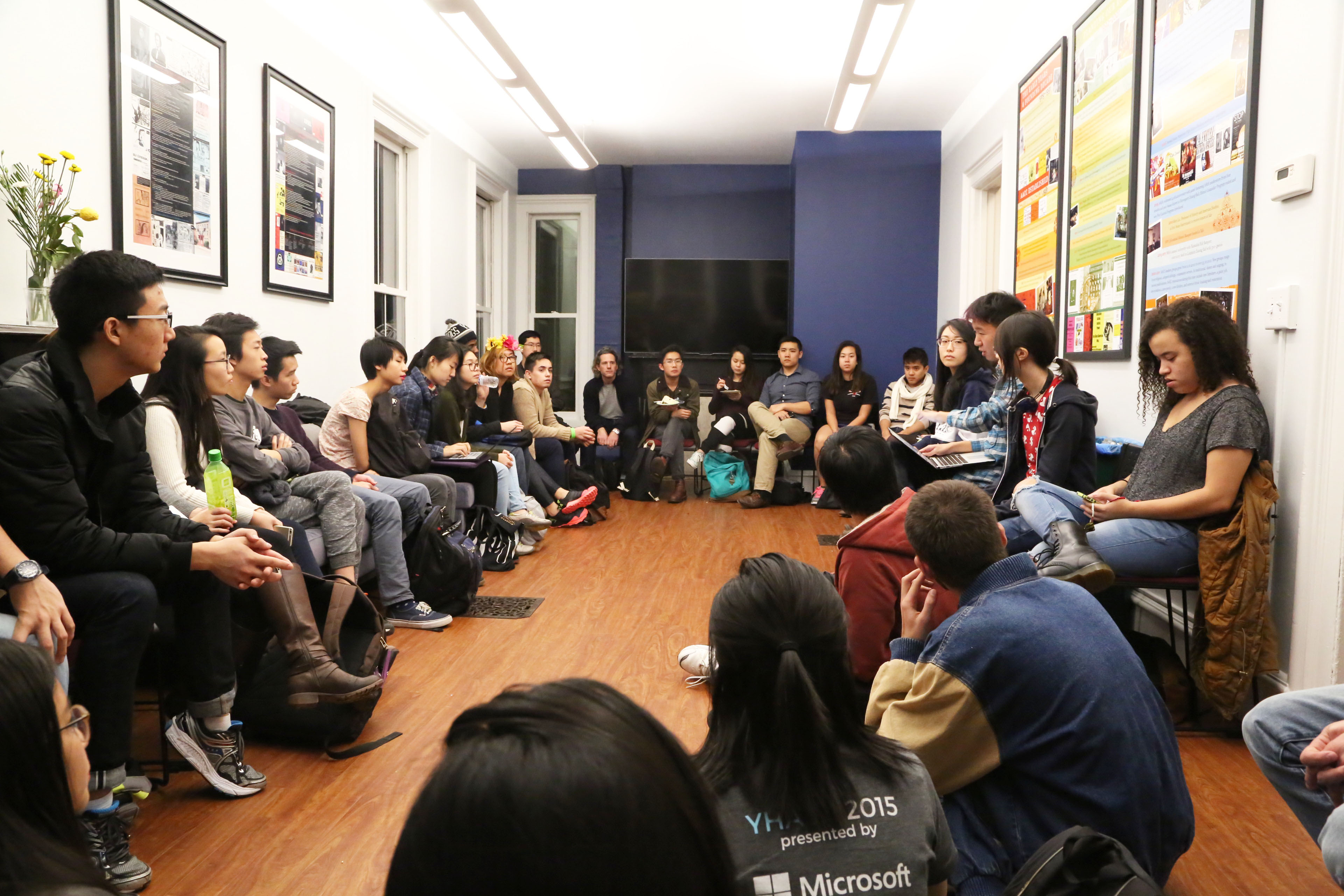
The Asian American Cultural Center hosted an event Monday to discuss the renaming of Calhoun College and the naming of the new residential colleges.
Almost 50 students, many of whom were Asian American, came to the hourlong discussion. At the talk, Alex Zhang ’18, co-chair of the Asian American Studies Taskforce, challenged participants to think about whether the center should only support naming the colleges after an Asian-American candidate or support any candidate of color. Students at the talk decided that the best course of action would be to communicate with the other cultural centers and reach a consensus.
“A name by itself probably won’t alleviate racial conflict, but it can be meaningful to people in lots of other ways,” said Jessica Liang ’17, co-coordinator of the AACC, in an email to the News.
Seyoung Lee ’16 spoke about the larger symbolic meaning of a college’s name, stating her belief that debates about naming the new colleges after a candidate of color should not be exclusive to minority communities. She said plenty of white students on campus would also be sympathetic toward naming a college after a candidate of color.
“We need to somehow engage with that 50 percent of the student population,” Lee said during the talk. To engage students from all communities, Lee suggested creating some sort of campuswide notification system to publicize these types of events on campus.
Austin Strayhorn ’19 said Calhoun College should be renamed after an African-American candidate, as the name “Calhoun” impacts the African-American population in particular. He and his friends felt very uncomfortable wearing shirts and carrying items with the name Calhoun emblazoned on them, he said.
“It’s becoming a problem for just being in Calhoun and the administration is not taking a strong position by endorsing a hyphenation,” Strayhorn said. At the beginning of this month, Calhoun College Master Julia Adams, who had previously declined to take a public position in the dispute, called for the college to be rechristened Calhoun-Douglass College, after the 19th-century African-American abolitionist Frederick Douglass.
However, Zhang said there is only so much the administration could do to alleviate the dissatisfaction.
Halfway through the discussion, Zhang encouraged all participants to make a pledge with him to participate in future events hosted by other cultural houses. Almost all students raised their hands in support of the pledge. Zhang said he did not want to be among the few trying to engage with other cultural houses.
“I want my friends, people whom I just met in these events and other students to be part of the movement,” Zhang said.
The announcement for the names of the new residential colleges is currently set for April.







